
Urban Futures Conference 2015
25. and 26. November 2015 in Berlin

Tabbed contents
Overview
Innovations, strategies and processes for the city of tomorrow
How do we turn the vision of sustainable, adaptable and livable cities into reality? By collaborating and forming new constellations in order to plan ahead, design and test innovative development paths for tomorrow’s urban centers.
Fraunhofer’s “Urban Futures” Conference, which will be held in Berlin on November 25 and 26, 2015, promises to be one of the biggest events of Science Year 2015. It aims to bring together relevant stakeholders in Germany and Europe who specialize in sustainable urban development and the smart cities of tomorrow. Visionaries from municipalities, politics, business and research will show what is set to become standard in the next five or ten years through combinations of community strategies for the future, urban technologies, new forms of collaboration and the use of city neighborhoods as living labs. And for the first time, the experience gained so far from the three European smart city projects will be presented for evaluation and analysis.
Exciting panel discussions and expert lectures will reveal the factors determining the success of realizing the city of the tomorrow. In addition to results of the Fraunhofer Morgenstadt initiative, specialists will also discuss topics from the German agenda process for the city of the future. You are invited to attend creative workshops to help develop pioneering solutions, and encouraged to network with the key players of today and tomorrow. The first day will be held in German and English (simultaneous interpretation available), and sub-sessions on Day 2 will be held in either English or German.
Exclusive program formats such as the “Call for ideas” innovation competition, “Morgenstadt marketplace” and the “Ideas lounge” offer additional opportunities to gather information and exchange ideas. Come and join us in this exceptional environment – let’s shape the cities of the future together!
The conference is geared towards community representatives, municipal companies, solution and service providers, academics and political representatives alike, and aims to showcase overarching perspectives and approaches for the future development of the
21st-century city.
Program
November 25, 2015: »Visions and Governance«
On Day 1, which will be held mostly in German, but will be translated to English top-class speakers from municipalities, politics, business and research will elucidate various perspectives on »Visions and Governance«. The aim is to address equally the challenges and opportunities for our cities as central living and economic environments in the 21st century. A varied evening program includes inspiring keynote speeches, an informal get-together and, as the highlight of the evening, the presentation of the »Best Idea Award«.
November 26, 2015: Streams
Day 2, held primarily in English, features three parallel events that provide opportunities for in-depth discussion and interlinking of relevant topics at the national, European and global level. Visitors can choose which sessions they wish to attend, and are free to switch between the various streams during the breaks. In this way, you can arrange your own personalized conference program. Please find more information here:
Stream 1: Smart Cities and Communities Europe
Stream 2: Morgenstadt Initiative - Collaborative Business Models for Future Cities
Stream 3: Zukunftsstadt - Nationale Agenda für Deutschland
Accompanying exhibition: City of the future
In addition to the events listed above, there is also an accompanying exhibition both days at the »Morgenstadt marketplace«. The exhibition provides information on the latest developments and projects related to the city of the future, and provides another opportunity for further discussion.
Speakers
- Teresa Almeida
Coordinator, Camara Munipal de Lisboa - Prof. Günter Bachmann
Secretary General, German Council for Sustainable Development (RNE) - Prof. Dr. Wilhelm Bauer
Institute Director, Fraunhofer-Institute for Industrial Engineering IAO and IAT University of Stuttgart - Anna Lisa Boni
Secretary General, EUROCITIES - Matthias Brucke
CTO, embeteco GmbH & Co. KG - Prof. Dr. Hans-Jörg Bullinger
Senator, Fraunhofer-Gesellschaft - Dr. Graham Colclough
CEO, Urban DNA solutions LLP (United Kingdom) - Andrew Collinge
Assistant Director Intelligence and Analysis, Greater London Authority - Thijs van Dieren
Director of VolkerWessels iCity BV - Dr. Wolf Engelbach
Head of Competence Team Innovation Management, Fraunhofer-Institute for Industrial Engineering IAO - Michael Fischer
Division Manager for Policy and Strategy, Ver.di Federal Administration - Keir Fitch
Head of Unit Research and Innovative Transport Systems, European Commission - Miguel Ángel García Fuentes
Coordinator, Remourban Fundacíon CARTIF - Albert Geiger
Head of Sustainable City Development, City of Ludwigsburg - Rob van Gijzel
Mayor, Eindhoven - Francisco Gonçalves
Project coordinator and EU funding adviser, Lisboa E-Nova (Municipal Energy Agency) - Hans-Joachim Grote
Mayor, City of Norderstedt - Yannick Haan
Project Manager "Hack your City, Wissenschaft im Dialog gGmbH - Franz-Reinhard Habbel
Press-Secretary, German Association of Towns and Municipalties (DStGB) - Felix Hasse
Partner, PriceWaterhouseCoopers (PwC) - Prof. Dr. Lutz Heuser
CEO, Urban Software Institute GmbH & Co. KG - Anandi Iyer
Director, Fraunhofer India - Dr. Peter Jakubowski
Head of Unit for Transport and Environment, Federal Institute for Research on Building, Urban Affairs and Spatial Development - Dr. Rainer Kallenbach
Managing Director, Bosch Software Innovations GmbH - Gustaf Landahl
Coordinator GrowSmarter, City of Stockholm (Sweden) - Dr. Urs Luczak
Brühl Manager, City of Chemnitz - Wido van de Mast
CEO, Volker Wessels Telecom - Xiao Meng
Digital China SmartCity Research Institute - Dr. -Ing. Timo Munzinger
Parliamentary Secretary, German Federal Ministry of Education and Research - Stefan Müller
Parliamentary Secretary, German Federal Ministry of Education and Research - Prof. Martin zur Nedden
Director, German Institute of Urban Affairs gGmbH - Wolfgang Percy Ott
Head of Government Affairs Germany, Cisco Systems GmbH - Adam Pajgrt
International Relations Specialist, IPR Prague - Julian Petrin
CEO, Urbanista oHg, Stadtmacher.org - Heike Raab
Secretary of State and Commissioner, State Chancellery Rheinland Pfalz - Alanus von Radecki
Project Leader Morgenstadt: city Insigts, Fraunhofer Institute for Industrial Engineering IAO - Stephan Reiß-Schmidt
City Director, Urban Development City of Munich - Dr. Alexander Rieck
CEO, LAVA - Prof. Dr. Jörg Schaller
Director, ESRI Deutschland GmbH - Prof. Dr. Ina Schieferdecker
Director, Fraunhofer-Institute for Open Communication Systems FOKUS - Prof. Dr. Wolfgang Schuster
Member, German Council for Sustainable Development (RNE) - Werner Spec
Mayor, City of Ludwigsburg - Christoph Stroschein
CEO, German Society for System Innovation (GESI) - Thorsten Tonndorf
Head of Urban Development Planning, Senate Department for Urban Development and the Environment - Dr. Mario Trapp
Head of Department, Fraunhofer-Institute for Experimental Software Engineering IESE - Dr. Wolfgang Volz
Head of Department Advance Engineering Systems for Building Technology, Bosch Software Innovations GmbH - Damian Wagner
Coordinator Triangulum, Fraunhofer-Institute for Industrial Engineering IAO - Dominic Weiss
Smart City Wien Agency, TINA GmbH (Austria) - Inka Woyke
Head of Competence Team Service Management, Fraunhofer-Institute for Industrial Engineering IAO - Dr. Klaus von Zahn
Head of the Environment, Agency City of Freiburg
as well as further representatives from german and european towns and municipalties being part of the EU Projects
- Remourban (with the Lighthouse Cities Valladolid, Nottingham, Tepebasi)
- GrowSmarter (with the Lighthouse Cities Stockholm, Cologne, Barcelona)
- Triangulum (with the Lighthouse Cities Eindhoven, Manchester, Stavanger)
Call for Ideas
Call for ideas: good ideas for better cities!
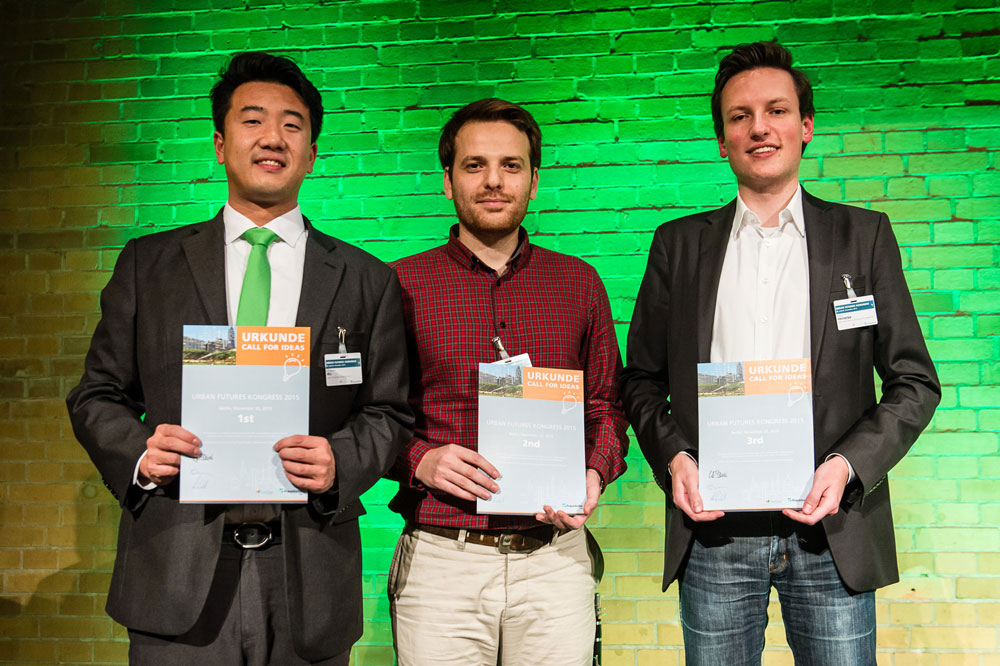
What does the city of the future look like?
We were seeking out new concepts and ideas for revolutionary products, technologies or methods.
The teams behind the top ten concept sketches submitted are given the opportunity to present their idea to some 400 guests in an elevator pitch on the first night of the conference on November 25, 2015. The top three innovators will also be rewarded with memberships in Fraunhofer’s Morgenstadt innovation network that are worth 25,000 euros.
The top ten projects presented on the conference:
Winner: GreenCitySolutions

Green City Solutions offers intelligent solutions for environmental services, CleanTech and sustainable urban development that helps provide residents with a healthier, more productive life in future-ready, livable cities.
Combining state-of-the-art Internet of Things technology with the innate qualities of special moss cultures, the CityTree filters particulate matter, NOx and thus large amounts of CO2 equivalents from the air.
Analog information can also be displayed in the form of writing or images on its green surfaces and digital data can be transmitted by adding a QR code, iBeacon or NFC.
Second Place: ParkHere
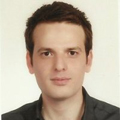
ParkHere is a spin-off of the Technical University of Munich. It has developed the world’s first energy autarkic sensor system for smart parking solutions. With the sensor-based real-time data about free parking places they are planning not only to save the urban environment we are living in, but also the nerves of millions of car drivers and inhabitants.
Third Place: Breeze
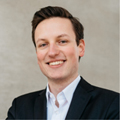
Breeze helps cities and companies to create a livable world. Founded in February 2015, this start-up is developing inexpensive environmental sensors and a cloud-based analytics platform for evaluating environmental data. A sensor for determining air quality has already been produced and is currently being used by several customers. It generates recommendations for actions that could improve environmental quality.
Cleverciti
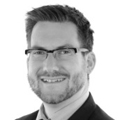
Cleverciti has developed a cutting-edge smart parking management solution for real-time parking information. The overhead sensor technology can be integrated into street lights and takes the pain out of the daily hassle of finding a parking space. Our solution helps to manage parking efficiently, cost effectively and reduces traffic, too.
Evo-Connect
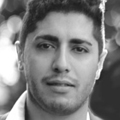
With its data hub, Evo-Connect offers a unique combination of security, transparency and comfort. It is a fundamental (infrastructural) requirement for the implementation of intelligent energy management systems through Smart Home, which is expected to increase energy efficiency in the city of the future.
Kappo Bike
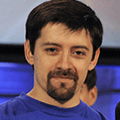
Kappo is a unique mobile social game designed to encourage users to use their bicycles more often by be in contact with their friends and cyclists around the world. It mixed the addictive successful social games features with GPS tracking technology, actually the only way to level up, unlock new virtual equipments and play is riding your real bicycle.
But Kappo it’s more than a game, with all the data collected from citizens we offer cyclists insights and predictive analytics to help cities take better infrastructure decisions, for instance, build new bicycle routes in places that is really necessary based on the local flows and cyclists demand.
Multifactory Value Chain
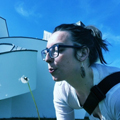
A Multifactory is a revolutionary concept for the production environment in urban contexts. It is a shared working space but it is not an incubator, coworking space, FabLab or makerspace. This is a completely new concept.
A Multifactory is an “Invisible Factory”, which can be seen as an archipelago of companies that are independent and fully autonomous in every aspect. Yet they can cooperate in such an integrated way as if they were divisions of a single, huge company. This is an idea that is spreading autonomously throughout Europe in cities very different from each other. It is a new, complex system of urban regeneration through the creation of a value chain in urban contexts.
Vertical-Urbanism
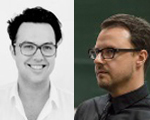
We live in a rapidly urbanizing world: By 2050, almost 70 percent of the world’s population will live in cities. As metropolises continue to densify and the average height of buildings reaches ever skyward, high-rise towers will play an integral role in the dynamic evolution of our future urban landscapes. However, this vertical expansion and its currently unresolved relationship to the horizontal plane, poses a new set of challenges.
4ct-application
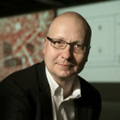
The idea 4ct [For city] is to create a “virtual company” focused on universal innovative methods of urban development.
4ct aims to connect top, real-life professionals within subject development cases/ fields/ cities in a flexible way, adjusted to the specific projects. Different levels of specialist involvement provide an exchange of experience, information and innovations.
4ct wants to deliver results for both public/ cities and private/ developers, which fully matches the interests of both parties. Oriented towards sustainable solutions, the main benefiter is the city and its users.
Thinkubator
